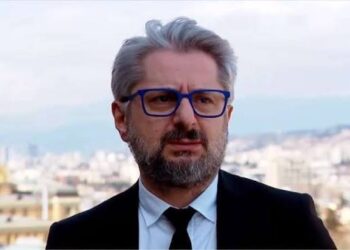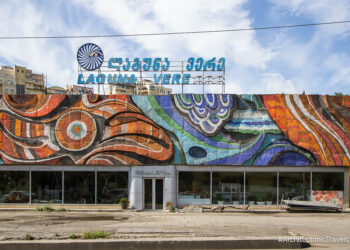European Commissioner for Neighborhood Policy and Enlargement, Olivér Várhelyi, stated on his mid-November visit to Tbilisi, that, in light of Russia’s war in Ukraine, the European Union needs reliable partners and allies in the fields of security, economy and, above all, energy.
Várhelyi noted that Georgia can be such a partner.
“The Black Sea is the center of our plans. The Black Sea power cable is very symbolic; historically symbolic, to the extent that it will connect Georgia and the Caucasus with Europe. It is also symbolic because, against the backdrop of Russia’s war, Ukraine needs reliable partners and allies in the fields of security and economy, but most of all in the energy field. Georgia can be such a reliable and reliable partner and ally. We create partnerships around us, and the message I brought to Georgia is this: We want to have a partnership in terms of reliable energy supply from Georgia, and through this initiative, energy security will be established in Georgia, the Caucasus and Europe. With this cable, we will be able to fulfill this goal,” he said at a joint press conference with the Prime Minister of Georgia, Irakli Garibashvili.
Várhelyi added that the digitized deep-sea cable is also connected to this project, the results of which will be tangible soon.
“I hope new ideas will emerge. A few days ago, I heard that Georgia is going to build an electricity terminal which will create additional opportunities and productivity for Europe. We are interested to explore this opportunity and see how we can expand our partnership and cooperation.
“We see that work has begun on the Black Sea, we are participants in this process, and I hope that it will not only connect the Black Sea, but also in other directions… and trade will grow, as it once was between our regions,” said the European Commissioner.
Azerbaijan’s President Ilham Aliyev and Hungary’s Prime Minister Viktor Orbán also talked about the import of electricity to Europe via Georgia.
Possible theoretical routes for the export of electricity from Azerbaijan to Europe are as follows:
Azerbaijan – Georgia – Black Sea – European Union (Romania, Bulgaria)
Azerbaijan – Georgia – Turkey – European Union (Bulgaria, Greece).
Olivér Várhelyi further spoke about Georgia’s position and progress with regard to fulfilling the European Commission’s 12 recommendations for EU candidacy.
He stated that he came to Georgia for the first time not only with the mandate of the European Commissioner for the issues of neighborhood policy, but also for enlargement.
“During this period of difficulties that we are facing, and this new geopolitical pressure, Georgia has shown us very clearly that only joining the European Union is a strong and solid goal of Georgia. For this, long-term stability and peace are needed.
Várhelyi noted that the vast majority of the population of Georgia supports joining the European Union, and this is a very strong mandate not only for the government, but also for the entire political elite, adding that for this it is necessary to fulfill 12 recommendations of the European Union.
“Today we came with a very clear purpose – we want to help you prepare Georgia to join the European Union. We want to move forward together in this direction. We have a lot of work to do in the coming weeks and months. Georgia will have to make a big effort to show that it is ready to become a candidate country, but I must emphasize that this will only happen if the whole country, all of Georgia and all Georgians inside and outside the country, work for this goal. I am sure that history never gives the same chance twice, so we should embrace this opportunity and make it a reality. To do this, we need to implement the 12 recommendations, and we need to show a good example in this direction. I am glad to see steps taken in this direction”, said Olivér Várhelyi.
He added that the faster Georgia fulfills the 12 recommendations, the faster it will advance on the road to Europe.














